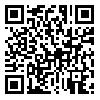دوره 10، شماره 3 - ( تابستان 1403 )
جلد 10 شماره 3 صفحات 222-211 |
برگشت به فهرست نسخه ها
Download citation:
BibTeX | RIS | EndNote | Medlars | ProCite | Reference Manager | RefWorks
Send citation to:



BibTeX | RIS | EndNote | Medlars | ProCite | Reference Manager | RefWorks
Send citation to:
Fagbenro D A, Olugbenga Olasupo M, Sunday Idemudia E, Sulaiman S A. Mediating Effect of Self-efficacy Between Personality Traits and Workplace Bullying of Nurses. JCCNC 2024; 10 (3) :211-222
URL: http://jccnc.iums.ac.ir/article-1-556-fa.html
URL: http://jccnc.iums.ac.ir/article-1-556-fa.html
Mediating Effect of Self-efficacy Between Personality Traits and Workplace Bullying of Nurses. نشریه مراقبت پرستاری مددجو محور. 1403; 10 (3) :211-222
چکیده: (2137 مشاهده)
Background: Previous studies have been done on antecedents of workplace bullying, but the connections between personality traits, self-efficacy and workplace bullying are still given less attention in the present workplace bullying literature. Therefore, this study examines the predictive role of personality traits on workplace bullying and investigates the mediating effect of self-efficacy in the relationships between personality traits and workplace bullying among a sample of Nigerian nurses.
Methods: A descriptive, cross-sectional study was conducted on 371 nurses aged 20 to 58 (Mean±SD age, 39.12±8.31 year, women=305). They were selected through a purposive sampling in Ibadan, Nigeria, in 2022. The subjects responded to the negative acts questionnaire-revised, big five inventory and generalized self-efficacy scale. The obtained data were analyzed using the Pearson product-moment correlation and structural equation modeling (SEM) in SPSS software, version 23. The hypotheses were tested at a 0.05 level of significance.
Results: Among the personality traits, extraversion (β=-0.313, P<0.001), agreeableness (β=0.371, P<0.001), conscientiousness (β=0.325, P<0.001), and openness to experience (β=-0.154, P<0.001) predicted workplace bullying. Findings also revealed that self-efficacy (β=-0.156, P<0.05) predicted workplace bullying among nurses. Self-efficacy partially mediated the link between personality traits (agreeableness and openness to experience) and workplace bullying (β=-0.042, 95% CI, 0.016%, 0.074%, P=0.001), indicating that self-efficacy serves as a buffer to the experience of workplace bullying.
Conclusion: Self-efficacy enhancement training programs are suggested for nurses to make them proactive in workplace-related bullying.
Methods: A descriptive, cross-sectional study was conducted on 371 nurses aged 20 to 58 (Mean±SD age, 39.12±8.31 year, women=305). They were selected through a purposive sampling in Ibadan, Nigeria, in 2022. The subjects responded to the negative acts questionnaire-revised, big five inventory and generalized self-efficacy scale. The obtained data were analyzed using the Pearson product-moment correlation and structural equation modeling (SEM) in SPSS software, version 23. The hypotheses were tested at a 0.05 level of significance.
Results: Among the personality traits, extraversion (β=-0.313, P<0.001), agreeableness (β=0.371, P<0.001), conscientiousness (β=0.325, P<0.001), and openness to experience (β=-0.154, P<0.001) predicted workplace bullying. Findings also revealed that self-efficacy (β=-0.156, P<0.05) predicted workplace bullying among nurses. Self-efficacy partially mediated the link between personality traits (agreeableness and openness to experience) and workplace bullying (β=-0.042, 95% CI, 0.016%, 0.074%, P=0.001), indicating that self-efficacy serves as a buffer to the experience of workplace bullying.
Conclusion: Self-efficacy enhancement training programs are suggested for nurses to make them proactive in workplace-related bullying.
| بازنشر اطلاعات | |
 |
این مقاله تحت شرایط Creative Commons Attribution-NonCommercial 4.0 International License قابل بازنشر است. |





